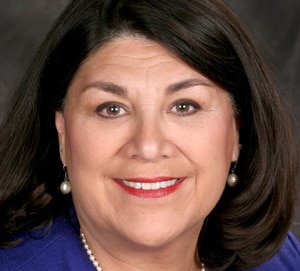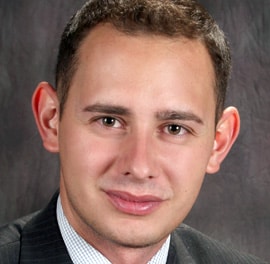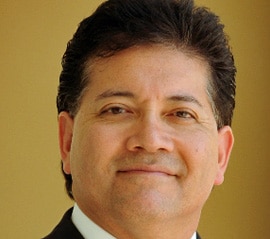
Photo by AMagill/flickr.com
With involvement by political committees on the rise and Las Cruces lagging behind the state and City of Albuquerque in enacting campaign finance reforms, the city’s mayoral candidates share their ideas for reform
All three candidates for mayor of Las Cruces say they support campaign finance and other ethics reforms.
Dolores Connor, Michael Ray Huerta and Ken Miyagishima all told NMPolitics.net in response to a questionnaire that they would support campaign contribution limits and more frequent reporting requirements in municipal elections. Each had other ideas for reform. And all three discussed the involvement of political action committees in municipal elections.
Though massive campaign contributions haven’t been an issue in Las Cruces elections, during the 2007 and 2009 election cycles political committees spent money in city elections, and in 2009 a committee’s failure to report its fundraising and spending to the city led to confusion about what city ordinance requires. Also in 2009, residents of City Council District 6 received phone calls many described as a push poll. Who paid for those calls remains a mystery.
And this year, an out-of-state political committee says it plans to help elect Huerta but won’t file finance reports with the city.
Connor, the District 2 councilor who is giving up that seat to run for mayor in the Nov. 8 election, said she would look for ways to minimize the impact of state and national political action committees on local elections. And she suggested implementing rules that would limit the use of city resources by incumbents in the months leading up to Election Day.
“This could include removing these officials from messages and commercials on our CLC-TV channel,” Connor said. “This would eliminate the potential conflict of using city outreach during a campaign period. This is just one example of a simple campaign reform that can be easily implemented.”
Huerta, who had previously laid out a plan for campaign finance reform in an NMPolitics.net guest column, said he would work to ban corporate donations to candidates and to give candidates the ability to file finance reports online. He also said he wants to move the city toward a public financing system for elections.
“I will work to move city elections toward public financing, so that once a candidate qualifies with enough $5 donations, they would receive public financing for citywide elections,” he said. “Right now we can’t afford this effort financially, but in time, I know we can enact this fair and transparent process in our city elections.”
Miyagishima said he supports public financing of campaigns, “if we can find a way to do it that wouldn’t be unconstitutional.” And he explained the reason ethics reform didn’t happen during his first four years as the city’s mayor, even though he said in 2009 that he had some reform ideas he planned to push.
“While I fully support election reform, it would have been very difficult for a new mayor and council to immediately set out to change election rules in the City Charter, because the charge would have been that we were making those changes to benefit ourselves,” he said. “Municipal election reform is so important that it can’t be seen as a partisan issue, and any changes need to have widespread support.”
The questions
The candidates’ comments came in response to questions NMPolitics.net asked about campaign finance and other ethics reforms. The questions I asked:
“In the last two election cycles we’ve seen political committees get involved in Las Cruces elections and push back against disclosure by laws by, at least initially, not filing finance reports with the city. At a state level and in Albuquerque, there have been efforts to reform campaigns by instituting contribution limits and public financing and increasing transparency by requiring more frequent campaign reporting. Other ethics reforms have included webcasting and limits on gifts elected officials can accept.
“Yet in Las Cruces, we’ve seen no structural reform. We don’t require frequent campaign reporting. We have no limits on contributions. Advertising doesn’t have to state who paid for it.
“Does Las Cruces need to tackle campaign and ethics reform? Why or why not? Have you done anything to promote reform in the past? What specific reforms would you propose if you’re elected mayor, if any? Do you support tougher reporting requirements and more frequent reporting deadlines? Do you support contribution limits and/or public financing? Are you concerned about recent political action committee involvement in city elections? Why or why not? If you are concerned, what should be done about it?”
Here are the candidates’ full responses:

Las Cruces mayoral candidate Dolores Connor
Dolores Connor
“In my 2007 campaign I self-imposed a $250 limit to my contributions. So my answer to your question on whether instituting contribution limits can be done is of course it can, and I would have no issue with a limit. Regarding the frequency of campaign reporting (which is currently once before the election and once after), I would not have a problem with more frequent reporting as it would help the candidate to keep up-to-date records and provide residents with the information they would like to see.
“The recent news about a PAC becoming involved in a city election of course is not the first. In 2007 there was a PAC that came to Las Cruces and affected the outcome of the race. It is my sincere hope that Las Cruces is not taken over again by special-interest organizations hoping to get national attention or to move in for the night and move on in the morning. I think that says a lot about a candidate. I am proud that my campaigns, both past and current, have relied solely on local volunteers, something that the honorable citizens of our great community deserve. So as to this aspect of an election, I would investigate rules that would minimize this type of state or national special interest impact on Las Cruces elections.
“I have worked hard at being involved in the way my campaign is funded. As of today (Oct. 1), in my current campaign, my largest donors include a husband and wife, who donated $1,250 each. There are a handful of business donations under $500, and therefore most of my collected dollars come from individuals and families.
“In the future, I would welcome campaign ethics reform. For example, when a potential candidate for a municipal election is a sitting elected official, I would look into resolutions that would limit the use of city resources, such as the Public Information Office on press releases, at a minimum of 90 days prior to election day. This could include removing these officials from messages and commercials on our CLC-TV channel. This would eliminate the potential conflict of using city outreach during a campaign period. This is just one example of a simple campaign reform that can be easily implemented.”

Las Cruces mayoral candidate Michael Ray Huerta
Michael Ray Huerta
“In Las Cruces, many of the challenges we face at City Hall aren’t Democrat v. Republican problems, but instead, it’s too often the ‘good ol’ boys’ versus everyone else. If we want better government, we must, as a community, expect better campaigns. That is a commitment I will fight for as Mayor, and that is a commitment I have already made in this campaign.
“A few weeks ago, I challenged my opponents to join me in setting self-imposed contribution limits at the state and federal standard of $2,300. I also challenged them to join me in not accepting any corporate money.
“As Mayor, I will work with city council to enact fair and transparent election laws that are not currently in place, and that have not ever been addressed by any mayor or council in our city’s history. Specifically, I will work to enact the following:
“ • Contribution limits of $2,300 for any candidate running for city office.
“ • No corporate donations to any candidate running for city office.
“ • Quarterly reporting requirements for all candidates running for city office.
“ • The ability to file financial reporting online.
“Additionally, I will work to move city elections toward public financing, so that once a candidate qualifies with enough $5 donations, they would receive public financing for citywide elections. Right now we can’t afford this effort financially, but in time, I know we can enact this fair and transparent process in our city elections.
“We must also understand the complexity of election law. Not only are local candidates bound by municipal law, but most FEC regulations apply in federal, state and local elections. As an example, while state and local law does not prohibit the ability of non-American citizens to donate funds to a campaign, FEC regulation clearly makes this a crime, even at the local level.
“Federal law also allows for Political Action Committees, or PACs, to advocate against or for any candidate in any race across the country. In Las Cruces, we must do everything we can to keep these groups accountable. All PACs should be required to comply with local election law, including the requirement of filing with the city in a timely and lawful manner.
“It’s one thing to talk about clean, fair and transparent elections. It’s another to actually have them. I’ve put my money where my mouth is by pledging my campaign to the changes I want to make as Mayor. I expect my opponents to do the same.”

Las Cruces Mayor Ken Miyagishima
Ken Miyagishima
“My own campaigns have never taken money from PACs, although I understand there were some independent mailings by a conservation organization in 2007 urging voters to support candidates who favored good growth and development policies. There was PAC support from the building industry in 2009 that went to some of the losing candidates. We hear rumors of PAC involvement in the 2011 campaign, but it’s hard to know what to make of them.
“Naturally I am concerned about PACs and other outside parties in local races, especially since they could bring enormous resources into local campaigns, distorting the local process. Given the current status of state and national law, including recent Supreme Court rulings, there may not be much we can do about PACs and other political entities participating in local campaigns, although we can encourage transparency by requiring earlier and more frequent campaign finance reports that would be required of third party entities as well as candidates. This is a change in the election code that I fully support. I would also support contribution limits and public financing of campaigns, if we can find a way to do it that wouldn’t be unconstitutional. I will say that I have a personal limit of $500 from any person, except when it comes from my immediate family or myself. I also do not receive contributions from developers or businesses who do work for the city or anyone or business who comes before city council.
“Given current law, the role of the press in publicizing contributions is extremely important. If the public can clearly see who is contributing to our local candidates, at least voters can take that information into account when they vote. I would also like to add that residents can see any filed candidate’s campaign contribution, these reports are available at the City Clerk’s office.
“While I fully support election reform, it would have been very difficult for a new mayor and council to immediately set out to change election rules in the City Charter, because the charge would have been that we were making those changes to benefit ourselves. Municipal election reform is so important that it can’t be seen as a partisan issue, and any changes need to have widespread support. The press can play an important role here as well, in advocating for needed changes.”
